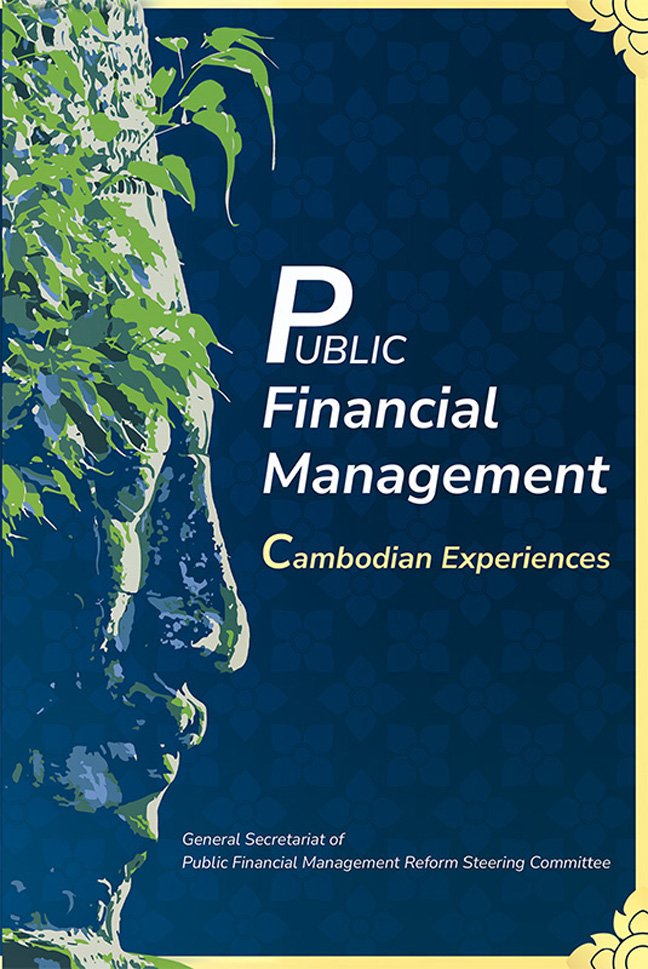Book contents
- Frontmatter
- Contents
- List of Figures
- List of Tables
- Foreword
- Preface
- Acknowledgements
- Notes on the Author, Editors and Contributors
- Abbreviations
- Chapter 1 Introduction
- Chapter 2 Overview of Cambodian Economy and PFM Reform Program
- Chapter 3 Strategic Planning and Budgeting
- Chapter 4 Components of PFM in Cambodia
- Chapter 5 PFM System Assessment Tools
- Chapter 6 Case Study
- Chapter 7 PFM Experiences of Selected ASEAN and OECD Countries
- Bibliography
- Glossary
- Index
Foreword
Published online by Cambridge University Press: 26 March 2024
- Frontmatter
- Contents
- List of Figures
- List of Tables
- Foreword
- Preface
- Acknowledgements
- Notes on the Author, Editors and Contributors
- Abbreviations
- Chapter 1 Introduction
- Chapter 2 Overview of Cambodian Economy and PFM Reform Program
- Chapter 3 Strategic Planning and Budgeting
- Chapter 4 Components of PFM in Cambodia
- Chapter 5 PFM System Assessment Tools
- Chapter 6 Case Study
- Chapter 7 PFM Experiences of Selected ASEAN and OECD Countries
- Bibliography
- Glossary
- Index
Summary
Cambodia has come a long way in its nation-building process following its tragic history under the horrendous collectivized management of the Khmer Rouge in the late 1970s. The rehabilitation process had to start from scratch in the 1980s. Cambodia needed to prevent the return of the Khmer Rouge regime while at the same time building the necessary physical infrastructure and human capital. After the official end of the civil war in the late 1990s, the Royal Government of Cambodia (RGC) announced full and complete peace in the whole country. Under the prudent leadership of Samdech Akka Moha Sena Padey Techo Hun Sen, Prime Minister of the Kingdom of Cambodia, and with peace as a necessary precondition, Cambodia has achieved remarkable economic growth in the past decades. Cambodia has also actively engaged in regional and international trade and has become one of the most open economies in the region.
The general election in 1993 marked a new chapter for Cambodia. In the first legislature of the National Assembly, the government adopted a comprehensive macroeconomic policy and structural reform program, which included efforts to integrate the Cambodian economy into the region and the world. Subsequently, the government achieved impressive results, especially in liberalization reforms and economic stabilization, which led to rapid economic growth with a low annual inflation rate below 5 per cent that still stands today.
As the focus was placed on macroeconomic growth and stability, measures to strengthen public financial management (PFM) remained weak. Good governance in PFM remained a major concern, both from the perspectives of revenue mobilization and expenditure efficiency. This situation underlined the need to push for more in-depth and comprehensive reform.
In 2004, the RGC launched a long-term and comprehensive PFM reform program covering both the national and subnational levels. Based on the Cambodian context and drawing on international experiences. This initiative aimed to gradually change government budgeting from an input-based and centralized budget system towards a more performance-based and decentralized budget management system. This program had four phases, the first of which, from 2005 to 2008, focused on strengthening budget credibility. The second phase ran from 2009 to 2015 and aimed at strengthening financial accountability. The third phase (2016–20), which is currently under implementation, focuses on budget-policy linkages. Finally, the fourth phase, to be implemented upon completion of the third phase, will seek to build performance accountability into the budget process.
- Type
- Chapter
- Information
- Public Financial ManagementCambodian Experiences, pp. xi - xiiiPublisher: ISEAS–Yusof Ishak InstitutePrint publication year: 2023



